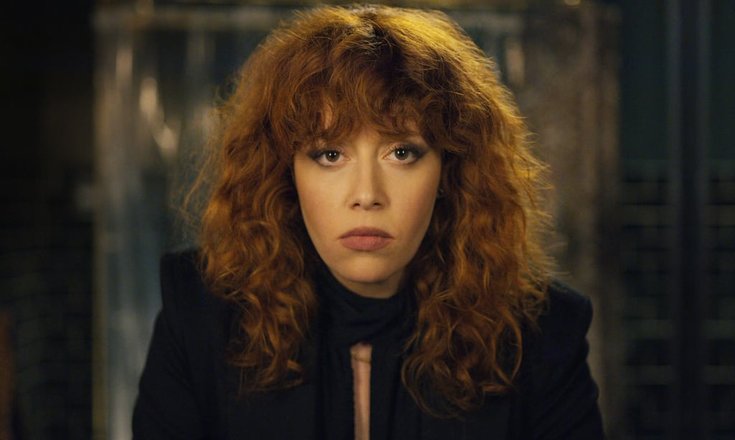4 STARS OUT OF 5 (Want to know what exactly our star ratings mean? Check out our explanations here)
Russian Doll is an American comedy-drama web series created by Natasha Lyonne, Amy Poehler, and Leslye Headland. It premiered February 1, 2019 on Netflix. The series follows Nadia, a woman who repeatedly dies and relives the same night in an ongoing loop, and stars Lyonne, Charlie Bennet, and Elizabeth Ashley.
My first viewing of Russian Doll was like whirling through multiple worlds at top speed while trying to track the journey of Nadia (Lyonne), and later Alan (Bennet), as they die again and again in a series of interlocked events. One of the beauties of the modern age is the ability to view things over again, which was exactly what I wanted to do with the series: a second viewing of the show was like peeling an onion. No, it was like unpacking a Russian doll.
Nadia has a backstory that builds and multiplies. She has a New York attitude and hair for days, with a mouth that never runs out and a drug tolerance that never runs dry. Alan, her partner in death, is soft-spoken and orderly, very much Nadia’s opposite. For the two of them, finding the connection between each other is vital. While Alan is clearly a victim of himself and is calm in the face of death, Nadia is a storm created by her surroundings and her always-imminent fate.
The supporting cast is as fantastic as the leads. Elizabeth Ashley as Ruth Brenner, Nadia’s longtime maternal figure, creates a genuine warmth in a story that might otherwise be cold. Nadia’s artsy New York friends are fantastic, and their exchanges in each of Nadia’s incarnations are routinely entertaining. The presence of New York’s homeless population, particularly the character Horse (Brendan Sexton III), is especially reminiscent of the works of Terry Gilliam, who has always utilized societal outsiders to create a dramatic, fantastic perspective.
One criticism of Lyonne’s performance is that I feel her portrayal could have been toned down; the abrasive New York swagger seems slightly over the top. Overall, though, Russian Doll was fantastic from head to toe. It takes the concept of the movie Groundhog Day (1993) and turns it on its head; this is not a numbers game of good deeds. It’s just about choices.
There are infinite tidbits from the show that I would love to share. I was impressed with how Nadia encounters multiple old world religions, speaking their languages and passing through their worlds fluidly. I also think the choice of “Gotta Get Up” by Harry Nilsson for a series theme was perfect. It would be impossible to touch on every piece of interlocking symbolism and cleverness that holds this story together, so I suggest you just watch it yourself.
In the end, as the show proposes, it is our connections to other people that move us from one layer to the next, eventually rebuilding the Russian Doll of our experience.







Be First to Comment